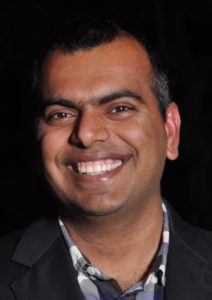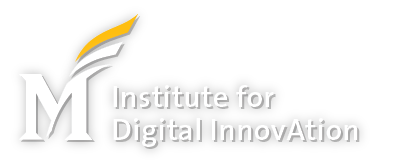
Harbir Antil is the Director of the Center for Mathematics and Artificial Intelligence (CMAI) and a professor in the Department of Mathematical Sciences at George Mason University. He is the co-Editor-in-Chief of the Springer journal “Advances in Continuous and Discrete Models.” He is on the editorial board of prestigious journals such as “SIAM Reviews” and “Math Control & Related Fields.” Antil has also held a research fellowship position at Brown University and is currently an Affiliate Professor at the University of Delaware. His areas of interest include algorithmic optimization, machine (deep) learning, numerical analysis, partial differential equations, and scientific computing with applications in optimal control, shape optimization, dimensional reduction, imaging, fluid dynamics, etc. His research is funded by the National Science Foundation, Airforce Office of Scientific Research (AFOSR), NIST, Department of Navy, and Department of Energy.
CMAI has a remarkable research output. Besides a large number of research grants (12 ongoings), just in the last 1.5 years, CMAI has published or submitted over 50 research articles in the leading journals. This level of output is comparable to some of the top centers in the country.
The Institute for Digital InnovAtion (IDIA) spoke with Antil about the Center for Mathematics and Artificial Intelligence.
Tell us about your center.
The Center for Mathematics and Artificial Intelligence (CMAI) focuses on research related to scientific computing, artificial intelligence, machine learning, big data, algorithm and software development, control, optimization, and nonlinear partial (or ordinary) differential equations. It considers a broad range of applications in biology, medicine, fluid dynamics, materials science, imaging, etc.
CMAI aims to create unique learning experiences for students and postdocs and foster ties between academia, national labs, industry, and government. CMAI truly has an interdisciplinary and international scope, which is clear from its advisory board consisting of representatives worldwide. The list includes 15 universities, four national labs (Sandia National Labs, US Naval Research Lab, National Institute of Standards and Technology (NIST), and Argonne National Lab), and five industries (The Aerospace Corporation, Facebook, MITRE Corporation, BlackSky, and MathWorks).
CMAI organizes conferences, workshops and supports a highly active visitor program and an internship program. It supports educational programs via tutorials, summer schools, and active involvement in the Department of Mathematical Sciences graduate program. Recently, together with several industries and Mathematical Sciences, CMAI has created one of its courses in Machine Learning and Data Science.
CMAI has a highly active postdoctoral program, and it collaborates with Mathematical Sciences to recruit graduate students. It pays special attention to recruiting underrepresented minorities such as females and African-Americans in STEM. CMAI is also actively recruiting students from minority-serving institutions such as the University of Puerto Rico. Furthermore, positions in CMAI are advertised worldwide, leading, for example, to the recent hiring of Dr. Evelyn Herberg from Hamburg, Germany. CMAI has successfully placed its postdocs and students in top places: Dr. Akwum Onwunta (CMAI postdoc) started his tenure-track position at Lehigh University in August 2021. Dr. Ratna Khatri, who graduated in 2020 with her Ph.D., received seven postdoc offers from top places; she accepted a permanent research scientist position at Naval Research Lab in Washington DC in 2020.
What kinds of projects are funded, and from which funding agencies?
CMAI currently has 12 externally funded grants which amount to over $2.5M and is being part (and leader) of multi-institutional grants. The list includes prestigious research grants such as the Defense University Research Instrumentation Program (DURIP) from AFOSR.
Our research, spanning the topics mentioned above, is currently funded by:
- National Science Foundation (NSF)
- Airforce Office of Scientific Research (AFOSR)
- Army Research Office (ARO)
- Department of Navy
- Defense Threat Reduction Agency
- Department of Energy
CMAI also has several collaborative pending proposals with the Department of Energy (DOE) and the National Institute of Health (NIH).
How does your project impact other disciplines?
Our research impacts other sciences, engineering, and society daily. The primary purpose of CMAI’s research is the health of people and our planet and to promote equality and equal opportunity. Our algorithms in data science played a critical role in detecting the first gravitational waves, which led to a Nobel Prize in Physics in 2017.
Together with the Center for Computational Fluid Dynamics (directed by Dr. Rainald Löhner), we have recently studied pathogen propagation (ex. COVID-19), transmission, and mitigation in built environments such as subway trains, hospitals, classrooms, courtrooms, etc. This research has been instrumental in creating public awareness, and in several cases such as courtrooms, this has led to significant redesigns to protect the jury. This research has also appeared multiple times in The New York Times and peer-reviewed articles. CMAI is at the forefront of artificial intelligence and machine learning to efficiently model chemically reacting flows, which occurs in many applications. A significant joint effort is currently underway to understand the role of AI/ML in medicine together with Dr. Milton Brown (Director of the Center for Drug Discovery, GMU).
What keywords describe your research?
Scientific computing, algorithms, machine learning, artificial intelligence, big data, control, optimization, numerical analysis, inverse problems, partial differential equations, fluid dynamics, imaging, and shape optimization.
What sorts of activities your center is involved in?
The Center is leading many different activities, and it invites people from outside regularly. All these activities are open to everyone without any cost. Most of the speakers are external.
Special attempts are made to invite speakers from underrepresented STEM groups. This includes early career and more established researchers. This has helped many students and early career researchers identify role models in the scientific community. After the seminars, we allow the students to talk to the speaker about their career goals or potential job opportunities. A few activities are listed below –
Seminars and Colloquia
1) Center for Mathematics and Artificial Intelligence (CMAI) Colloquium: This weekly colloquium has been running throughout the pandemic. It has over 1,000 registered participants from 6 continents.
2) Sayas Numerics Seminar: To fulfill its fundamental principle of collaboration, together with the University of Maryland College Park, University of Maryland Baltimore County, and the University of Delaware, CMAI has been organizing a weekly seminar series called Sayas Numerics Seminar.
3) Research Interaction and Training Seminars (RITS): CMAI regularly runs weekly seminars led by students and postdocs where a topic of broader interest is decided at the beginning of the semester. Then we try to get into more detail during the semester. This is regularly attended by several students and faculty members.
Conferences
1) East Coast Optimization Meeting (ECOM): CMAI initiated the annual East Coast Optimization Meeting (ECOM) at GMU. This is a joint project with Sandia National Labs. The goal is to introduce students and early-career researchers to the current optimization and machine learning trends and create a robust networking environment among academia, industry, and national Labs. During the 2021 meeting, we had over 400 participants. ECOM is funded by NSF.
2) Sayas Numerics Day: An annual meeting run by CMAI and the University of Maryland College Park, University of Maryland Baltimore County, and the University of Delaware. The primary mission of this workshop is to identify research opportunities to collaborate for students and postdocs.
3) CMAI Meets Industry Symposium: In 2021, CMAI launched this annual workshop to bring industry, national labs, and academia together. We have had speakers from NIST, Naval Research Lab, MITRE, and Aerospace.
4) Dynamics, Control, and Nonlocal Problems Workshop: CMAI will continue organizing this biennial workshop which first originated at the University of Puerto Rico, Río Piedras. This workshop is funded by ARO and AFOSR.
Summer Schools
CMAI has been organizing regular international summer schools. Details on the most recent summer schools can be found here.
How can you be reached?
I am happy to chat about any of the projects mentioned above.
Email: [email protected]
Website: https://cmai.gmu.edu
Personal website: http://math.gmu.edu/~hantil/

